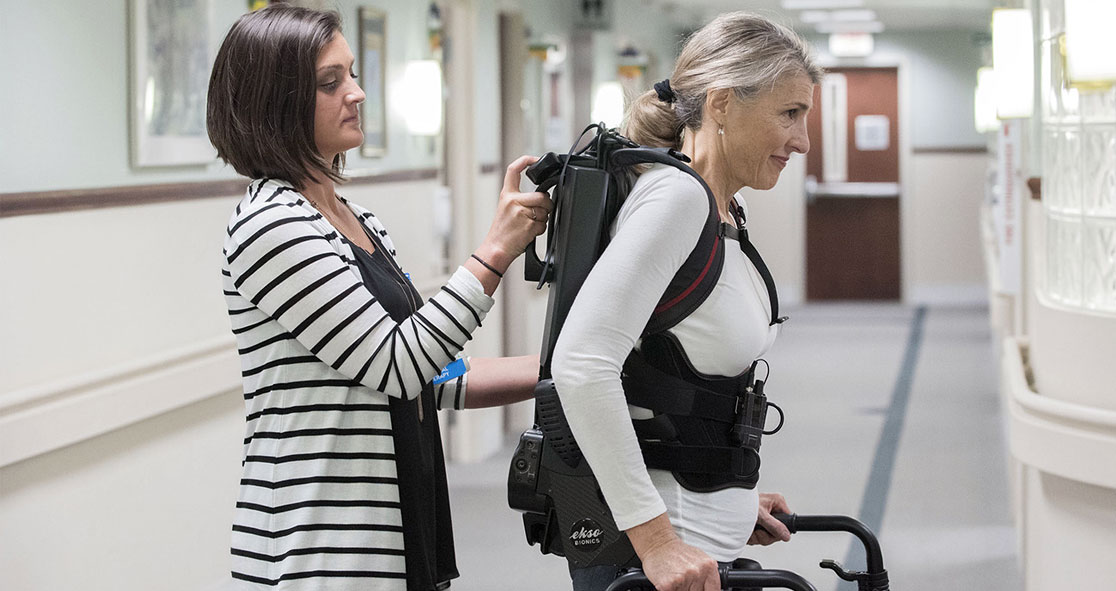Multiple sclerosis (MS) experts at Kessler Foundation have conducted the first randomized controlled trial to study the effects of robotic-exoskeleton assisted exercise rehabilitation (REAER) on mobility, cognition, and brain connectivity in patients with MS.
The experts found that REAER proved to be an effective intervention and a promising therapy for improving the quality of lives of those suffering from MS.
People with MS often experience impairments in both mobility and cognition. There are very few therapies to manage these debilitating symptoms. For some people with a substantial MS-related neurological disability, these therapies do not work.
Previous studies have shown that exercise rehabilitation is one of the effective approaches to manage the symptoms. In fact, some studies have suggested that even a single exercise rehabilitation intervention improves both mobility and cognition.
However, there is a lack of efficacy of exercise rehabilitation on mobility and cognitive outcomes in people with MS who have a substantial disability, according to Science Daily.
In the current trial of 10 participants with significant MS-related neurological disability, the researchers studied the efficacy of robotic exoskeletons to manage symptoms.
REAER is a relatively new method of treatment that enables patients to walk over-ground in a progressive regimen under the supervision of a therapist.
The team explained that REAER allows participants to walk at volumes needed to realize functional adaptations that can help improve cognition and mobility. They studied the brain’s activity patterns using the functional MRI.
The results were promising. After four weeks of REAER, the participants had large improvements in functional mobility, cognitive processing speed, and brain connectivity.
Dr. Brian Sandroff, a Senior Research Scientist at Kessler Foundation, said, “Four weeks is relatively short for an exercise training study. Seeing improvements within this timeframe shows the potential for exercise to change how we treat MS. Exercise is really powerful behavior that involves many brain regions and networks that can improve over time and result in improved function.”
Lead author Dr. Ghaith Androwis said, “This is particularly exciting because therapy using robotic exoskeletons shows such promise for improving the lives of people with co-occurring mobility and cognitive disability, a cohort that likely has the greatest potential to benefit from this new technology.”
He is a research scientist in the Center for Mobility and Rehabilitation Engineering Research at Kessler Foundation.
“We’re eager to design a larger trial to further study these effects,” Dr. Androwise added, “Based on our initial results, we’re optimistic that this approach may be superior to the current standard of care.”
MS is a potentially disabling disease of the brain and spinal cord (central nervous system), according to Mayo Clinic. In this disease, the immune system attacks its own protective sheath (myelin) that covers nerve fibers and causes communication problems between your brain and the rest of your body. Eventually, MS can permanently damage the nerves. The article was published in Science Daily.





















